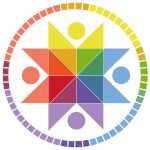Projects & Programs
Projects
The Gadugi (ᎦᏚᎩ) Project
Kinship caregivers are a primary resource for vulnerable children to have a safe environment while maintaining connections to their culture and community. However, without support, many kinship caregivers struggle to work effectively with the parents of the children in their care and to access the resources necessary to meet their own needs as caregivers. Many...
Indigenous Voices to Enhance and Improve Wellbeing
Why Survey Results
Engage for Equity- E2
Engage for Equity: About the study Community based participatory research (CBPR) and Community Engaged Research (CEnR) is growing rapidly in the U.S. and internationally as a core approach to reduce health inequities. Despite this rapid growth, there is little to no national consensus on measures or metrics of partnering practices, nor on the promising or...
CBPR Project: Research for Improved Health
NARCH Research Partnership “Research for Improved Health (RIH): A National Study of Community-Academic Partnerships” (U26IHS300009) funded through the Native American Research Centers for Health (NARCH V), National Institutes for Health (NIH) & Indian Health Service (2009-2013). This project was an in-depth investigation of promoters and barriers to Community Based Participatory Research (CBPR) in American Indian/Alaska...

Healing Seasons: Preventing HIV among Native Americans through the treatment of PTSD & Substance Use
Lead Investigators: Cynthia R. Pearson, PhD Debra Lee Kaysen, PhD In communities where there are disproportionate risks for trauma exposure and substance misuse, mental health services are generally overlooked and under resourced. Issues such as post-traumatic stress disorder (PTSD), substance use disorder (SUD), HIV/STI risks are often treated separately rather than combined. Built on an...
Health Survey of Two-Spirited Native Americans supplement: Trauma, Coping, and Health Outcomes Among HIV+ Native Americans
This supplement explores trauma, stress, coping, and alcohol and other drug use among HIV-positive American Indians.
Urban American Indian Identity, Alcohol Use, and HIV Risk
The project tested a theoretically driven indigenist stress-coping model among 300 two-spirit American Indians via a structured survey; designed and tested the feasibility of various peer-driven sampling recruitment methodologies to produce a national representative sample; and conducted a qualitative study to identify major strengths and coping strategies in this population.
NARCH V – Research for Change: Cross-Site Multi-cultural Community-Based Participatory Research
The causes of health disparities among communities of color and other underserved populations are complex and include social, biological, economic, cultural, and historical factors. A critical step in reducing health disparities among these communities is addressing the mistrust that characterizes community attitudes towards research and to ensure authentic community engagement in improving health. This study is an in-depth investigation of promoters and barriers to Community Based Participatory Research with the goal of improving health status and promoting health equity.
Caring for our Generations supplement: HIV/AIDS Supplement to Caring for our Generations
This project is a supplement to the Caring for Our Generations Project and explores risk and protective factors related to HIV/AIDS, Hepatitis-C, and other STIs.
Health Survey of Two-Spirited Native Americans
The Honor Project was a ground-breaking survey with six nationwide partners looking at the impact of historical trauma, discrimination and other stressors on the health and wellness of Native Lesbian, Gay, Bisexual, transgender and Two-spirited men and women – a historically undeserved population. IWRI partnered with Native agencies to ground and contextualize the information gathered through the project. This process was truly a collaborative venture, involving community members at every step of the research process. Community driven research is just one of the many ways that IWRI respects indigenous knowledge, diversity and resiliency.
Next page



